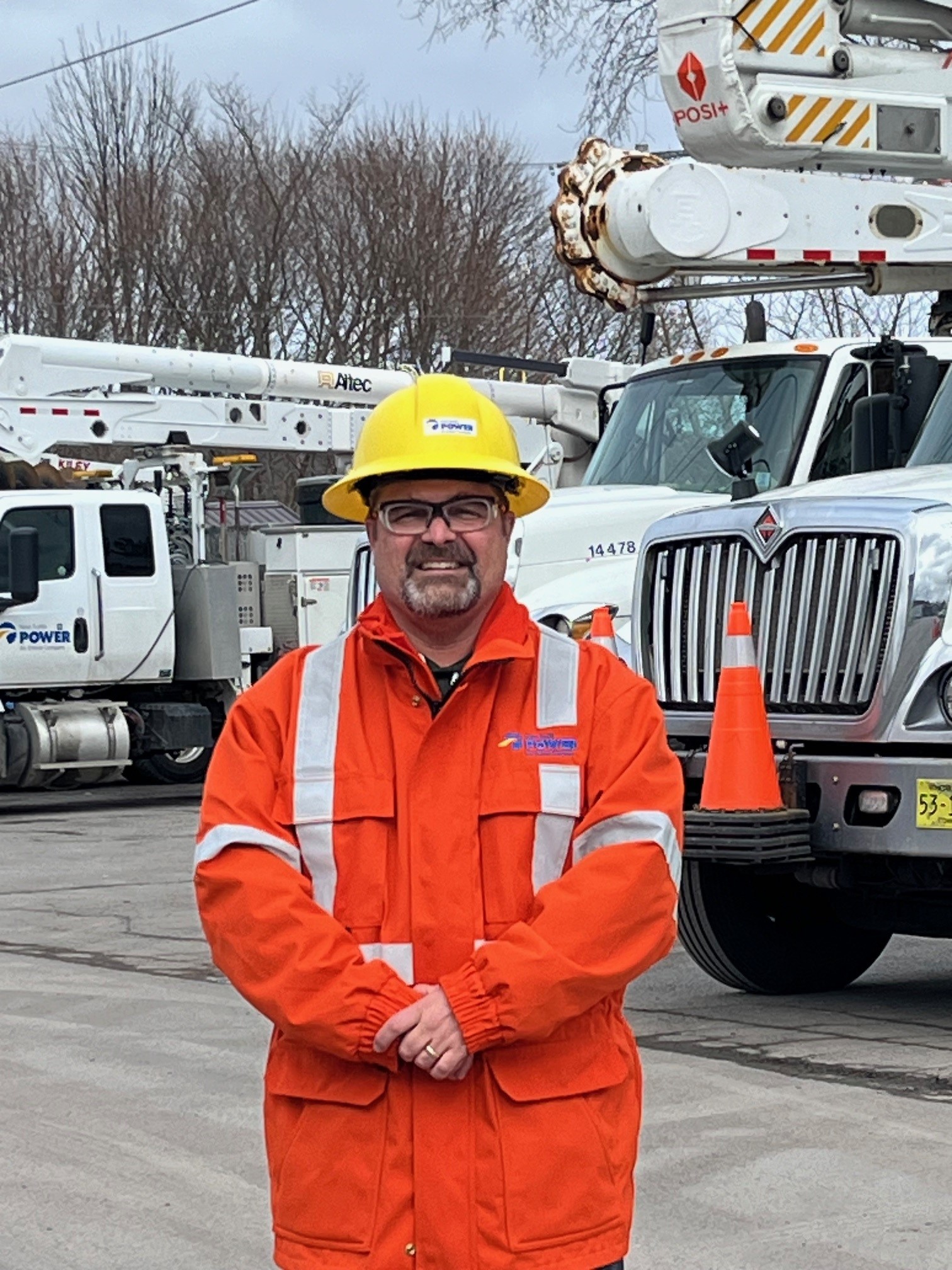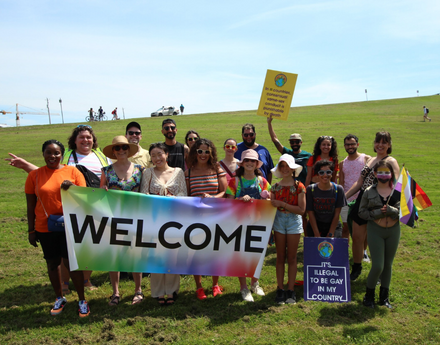Joy and Justice: Recognizing Pride and National Indigenous
History Month
This June, we’re recognizing both Pride and National Indigenous History Month.
It’s an important time for us to recognize and celebrate Indigenous Peoples across Canada, while reflecting on the injustices of the past, and those still present today.
Pride Month is also an opportunity to show our support for the 2SLGBTQIA+ community and to continue to advocate and build a culture of inclusion and diversity across our company, and in our communities.
It’s a reminder that there is always more work to do. And that we must continue to listen, learn and take action.
This month, we’ve invited Nik Phillips, a two-spirited Mi'kmaw knowledge keeper, of Millbrook First Nation, to speak with our employees. As we kick off June, he joined us for an enlightening conversation about identity, acceptance, and building safer, more welcoming communities.

What do joy and justice mean to you?
Joy and justice are the two sides of Pride Month. It’s important to celebrate the uniqueness and diversity of our community. When we celebrate with intention, we experience joy. However, it is also crucial that we continue to advocate for justice. We must acknowledge the prejudices and challenges members from the 2SLGBTQIA+ community experience because of continued separation and over categorization of our differences.
Pride is an opportunity to have courageous conversations about the discrimination we experience every single day. Justice is rooted in allyship, and as allies, it is important to create space, so our truths can be spoken. Justice is achievable, but its more than just spoken empty words. Action is justice.
As we honour indigenous Nova Scotians this month and also recognize our 2SLGBTQIA+ community, it’s a chance to better understand and acknowledge those that identify as two-spirited. What does it mean to be two-spirited?
The term two-spirited was recognized in 1990, as a way for pan-Indigenous, gender fluid people to identify themselves within colonial context. It is a term for settler understanding – so we can educate on how we see and understand gender, sexuality, and spirituality.
The term, “Two-spirited” has given space back to our indigenous communities following the heteronormative, monogamous, misogynistic culture that was forced upon us. Prior to contact, gender and sexuality was never questioned. Those who were gender neutral, or “two-spirited” played extremely important roles within community, as they were seen as gifted beings. Many of our people were seen as medicine people, as healers, as birth doulas, genealogists, astronomers, teachers and more. However, with contact, over time, our roles have become fragmented. We’ve been disconnected from our purpose and understanding. It was illegal to be our authentic selves until recently.
The term 'two-spirited' gives us room to say, I am not a Lesbian, I am not Gay, I am not bi-sexual, I am not queer, nor questioning, I am two-spirited—which can encompass all, or parts thereof. It is a concept that says, I do not need to be labeled any longer in western ideology. Two-spirited gives voice, it gives space, it gives understanding, it gives identity.
What role do two-spirited peoples play within Mi'kmaw culture?
Each person is on their own journey of self-identification. Today, many of us continue to seek identity, trying to find understanding in what it means to be L’nu (Mi’kmaw), wrapped in our search for identity within our own sexuality.
There are some two-spirited members who are grounded and rooted in their identity and are leading change. Whereas others are still trying to understand what this all means.
As we regain momentum within our communities, being two-spirited allows us to be our authentic selves. In most circumstances, our communities are welcoming and accepting. We sometimes see this in gendered specific events where we may see two-spirited people in attendance and welcomed. Community events will encourage two-spirited attendance. We are also seeing this within some of our Mawiomi’s (pow wows) where anyone of any gender can dance in any regalia as they see fit. Two-spirited people are reclaiming ceremony and spirituality. We are rooting ourselves back into where we belong.
I think outside of our community, however there is still an emergency. Missing and Murdered Indigenous Women and Girls, now include two-spirited peoples. We are targets, we are seen as less than, we are not safe. As a country, we still have a lot of work to do.
How can we create safe, welcoming places for two-spirited peoples and all members of the 2SLGBTQIA+ community?
First and foremost, talk with the community. Ask them what they need for you to do, as allies, to create a safe space. There is no one way of doing this because we are not homogenous, and the needs across the community may be different. It is, however, important to create space for truths to be told. Creating safe spaces is not only looking at the physical spaces, like bathrooms, for example. We must also examine our policies, our procedures, and our own ignorance and biases.
There is power in broadcasting where you stand in your allyship—especially as an organization. Be open and be clear in your support. It’s the first step to ensuring everyone feels welcome and in driving real change.
At Nova Scotia Power, we value and promote diversity, equity and inclusion. For more information about our culture and careers at Nova Scotia Power, please visit our Careers page.
Share This Post:






